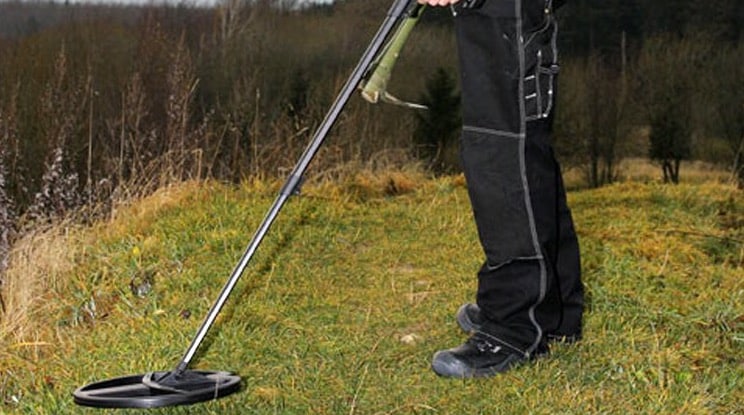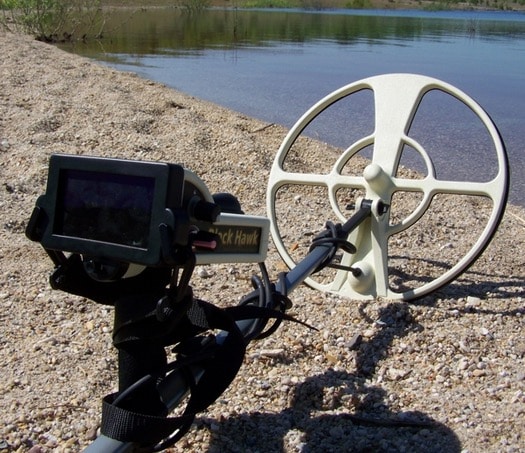Metal detectors are inspection devices used to identify different types of metals of varying shapes and sizes. In recent years, they have become very popular and are widely adopted by various industries.
Typically, metal detectors detect ferrous, nonferrous and stainless steel particles. Ferrous metals include iron and steel. They are magnetic in nature and high conductors of electricity. It’s most common contaminant is in industrial settings such as factories and warehouses. Some common types of ferrous metal contaminants include pins, screws, nails, rust, clips, etc. Non-ferrous metals such as copper, lead, aluminum are non-magnetic in nature but good conductors of electricity. Hence, they are also relatively easy to detect in a scanner though it is not as easy as ferrous metals. Stainless steel and stainless steel particles are most difficult to detect as they are both non-magnetic in nature and poor conductors of electricity. A single stainless steel sphere would have to be nearly twice the size of a ferrous sphere to generate any alarm on the metal detector.
Industries Using Metal Detectors
Metal detectors have become commonplace in several industries due to many governments demanding high regulation standards. Back in the day, the use was limited to detect anomalies in landmines and other industrial applications. Today, they are used extensively for air security to detect any unauthorized weapons, the construction industry to detect steel bars in pipes and concrete, and the food production industry to detect foreign health-hazardous objects in food. They are used at all the stages of production – from raw materials to packaging to ensure that the finished product that reaches the store shelf and into the homes of consumers is of high-quality and safe for consumption.

Types of Metal Detectors
There are several types of metal detectors used in various industries for different purposes. Walk-through metal detectors or portal detectors are most common in airports and public buildings. Hand-carried metal detectors are small and hand-held and are often used at security checkpoints in malls, etc. They are also very convenient devices to scout for loose change, and buried gems. Gardiometer metal detectors are mounted on police cars as their strong magnetic field can identify any weapons such as knives, guns, etc.
Types Of Metal Detectors For Food Industry
The food industry uses one or more of the following types of metal detectors to detect particles found in raw materials, any piece of equipment or packaging material. Depending on the type of product – solid, liquid or powdered, a different kind of metal detector may be used.
Pipeline system detectors – These are mainly used for jams, pickles, dairy, sauces, soups, etc.
Free Fall system detectors – Also, known as Gravity system detectors, they are mainly used for dry products such as powders, coffee beans, coffee whitener, tea, etc.
Conveyor system detectors – These are mostly used for bread, meats, sweets, cereals and fruit packages.
Bulk product detectors – These are used for products weighing more than 50lbs. They fit on a conveyor belt easily and can weigh up to 100lbs at a time.
Can you find aluminum and other products with a metal detector?
The short answer is yes. Aluminum can set off a metal detector alarm. There have been instances when an aluminum foil wrapper commonly found in chewing gums or candies have sent an alert signal at airport security. Though companies have now switched to paper for packaging these food items, you always want to double-check your pockets before passing through the scanner.
Headbands can also be detected with a metal detector. The frame lines of several headbands are made of metal and could trigger the alarm. Inhalers, snow globes and small alcohol bottles are also known to trigger alarms at airports and public buildings.
Today, metal detectors are more sophisticated and can identify anomalies as small as 5mm. They also are more convenient to use with various handheld devices available for non-commercial use as well. Since the last decade, there has been a surge in the number of companies that manufacture metal detectors. A wide majority can be used across industries from food, manufacturing and security. With increasing intentions to be safe and provide safety in everyday consumer products, metal detectors are changing the food industry, as well as security and safety of many visitors across public places.













baddiha